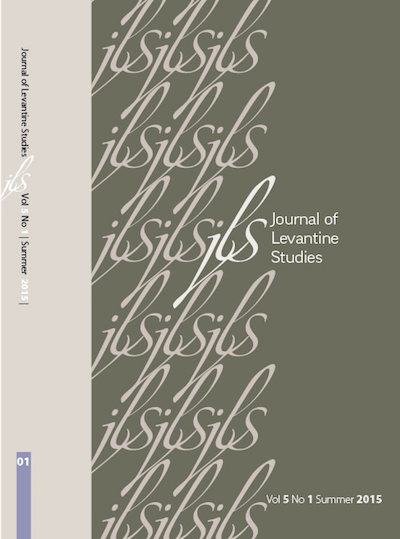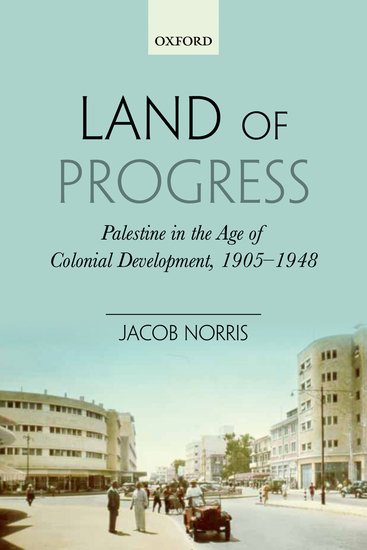-
Add to cartQuick view
Elizabeth F. Thompson. Justice Interrupted: The Struggle for Constitutional Government in the Middle East. Cambridge, MA: Harvard University Press, 2013. 432 pp.
Elizabeth F. Thompson. Justice Interrupted: The Struggle for Constitutional Government in the Middle East. Cambridge, MA: Harvard University Press, 2013. 432 pp.
$5.00Free!Add to cartQuick view -
Add to cartQuick view
Islamic Law as Indigenous Law: The Shari‘a Courts in Israel from a Postcolonial Perspective
Free!The article argues that to better understand the shari‘a court system in Israel, these courts should be examined from a postcolonial perspective. The resemblance between Islamic law, as applied in Israeli shari‘a courts, and “customary” laws, which were applied by “indigenous” courts in diverse colonial settings, is discussed, and the similarities and differences are highlighted. Specifically, the article illustrates that the shari‘a courts in Israel—like other “indigenous” courts working in colonial settings—constitute, at one and the same time, sites of co-optation and of resistance. On the one hand, the shari‘a courts are state courts—governed and controlled by state institutions—and as such they are used by state authorities for the purpose of controlling and subjugating the Muslim minority in Israel; on the other hand, these courts also constitute a sociolegal space where Israeli Muslims may forge their identity and may negotiate their position toward the state. In other words, they constitute an arena of autonomous agency. This argument, which draws on the postcolonial literature, is illustrated in the article with empirical examples from the shari‘a courts in Beersheba and Jerusalem.
Add to cartQuick view -
Add to cartQuick view
Exile, History and the Nationalization of Jewish Memory: Some reflections on the Zionist notion of History and Return
The essay tries to analyze the notions of “history” and “return” in Zionist discourse in order to clarify their political and cultural implications. I investigate the meaning and function of the phrase “return to history”, commonly used for the description of Zionism, in two different sets of terminologies: the theological terms that defined Jewish-Christian polemics and the terms “culture,” “civility,” and “ethnicity” as used in the discourse of modern nationalism and colonialism. Accordingly I argue that the consciousness embodied in the phrase “return to history” meant the acceptance of the very terms and principles that generated the exclusion of the Jews in Europe. Thheologically and in the terms of premodern Christian-Jewish polemics, the phrase expresses an acceptance of the Christian perception of history of the Jews and their exile. On another level, the use of the modern national model of history for the representation of the Jewish past reveals the obvious Orientalist dimension of the secularization of the concept of history, as referring exclusively to the Christian West. In Zionist discourse both the theological-redemptive and the Orientalist aspects were integrated in a way that illuminated them both. Finally, the return to history and the return to the land meant the obliteration of the history of the land and the existence of its inhabitants. It also determined the removal of the Jews from the multiple local histories in which they had existed in exile in order to include them in one common, separate narrative. As a conclusion, I suggest to re-consider the options embodied in the concept of exile for an alternative way of thinking Jewish-Israeli existence and collectivity.
$5.00Free!Add to cartQuick view -
Add to cartQuick view
The Making of Palestinian Christian Womanhood: Gender, Class, and Community in Mandate Palestine
This article seeks to expand the study of Palestinian Arab women’s self-identification and social and political activism by examining how Arab Christian women viewed, shaped, and managed their participation in the project of defining Palestinian national identity during the period of British colonial occupation. During the Mandate period, elite Christian women made particular use of mission schools and Christian women’s charitable organizations as platforms for promoting a vision of Palestinian nationalism as modern, nonsectarian, and politically progressive, in hopes of creating a Palestinian national identity in which they could claim a central role. As the Mandate wore on, though, it became increasingly evident that the presentation of Christian women as central to the expression of a broadly based, nonsectarian, modernizing, Westernizing Palestinian national identity was belied somewhat by the communal and class consciousness that education in elite Christian schools and membership in charitable organizations engendered. The way in which this purportedly middle-class, nonsectarian nationalist vision was developed and articulated in highly class- and communally conscious venues ultimately limited its purview and linked it with oppressive colonial practices in the eyes of much of the Palestinian Arab population.
$5.00Free!Add to cartQuick view -
Add to cartQuick view
Jacob Norris, Land of Progress: Palestine in the Age of Colonial Development, 1905-1948 Oxford: Oxford University Press, 2013. 241 pages.
Jacob Norris, Land of Progress: Palestine in the Age of Colonial Development, 1905-1948. Oxford: Oxford University Press, 2013. 241 pages.
$5.00Free!Add to cartQuick view -
Add to cartQuick view
The Palestinian Historiography of Family Leadership during the British Mandate
Free!This article seeks to expand the study of Palestinian Arab women’s self-identification and social and political activism by examining how Arab Christian women viewed, shaped, and managed their participation in the project of defining Palestinian national identity during the period of British colonial occupation. During the Mandate period, elite Christian women made particular use of mission schools and Christian women’s charitable organizations as platforms for promoting a vision of Palestinian nationalism as modern, nonsectarian, and politically progressive, in hopes of creating a Palestinian national identity in which they could claim a central role. As the Mandate wore on, though, it became increasingly evident that the presentation of Christian women as central to the expression of a broadly based, nonsectarian, modernizing, Westernizing Palestinian national identity was belied somewhat by the communal and class consciousness that education in elite Christian schools and membership in charitable organizations engendered. The way in which this purportedly middle-class, nonsectarian nationalist vision was developed and articulated in highly class- and communally conscious venues ultimately limited its purview and linked it with oppressive colonial practices in the eyes of much of the Palestinian Arab population.
Add to cartQuick view
- Home
- About JLS
- Issues
- Vol. 9 No. 1 | Summer 2019
- Vol 8 No 2 Winter 2018
- Vol. 8, No. 1: Summer 2018
- Vol. 7, No. 2: Winter 2017
- Vol. 7, 1: Summer 2017
- Vol. 6, Summer/Winter 2016
- Vol. 5, No. 2 Winter 2015
- Vol. 5, No. 1 Summer 2015
- Vol. 4, No. 2 Winter 2014
- Vol. 4, No. 1 Summer 2014
- Vol. 3, No. 2 Winter 2013
- Vol. 3, No. 1 Summer 2013
- Vol. 2, No. 2 Winter 2012
- Vol. 2, No. 1 Summer 2012
- Vol. 1, No. 2 Winter 2011
- Vol. 1, No. 1 Summer 2011
- Blog
- dock-uments
- Subscribe
- Submit
- Contact



